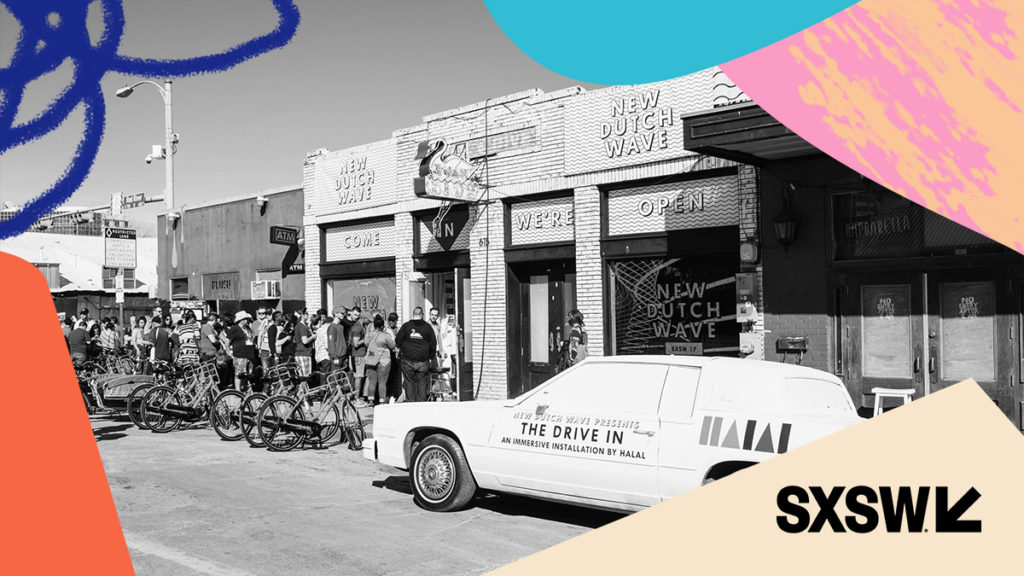SXSW—more specifically, the SXSW Interactive Festival—has turned into a boomtown for diplomacy.
Different countries emit their presence among Austin venues turned into sponsored activations. At Casa Peru, there’s a photo booth with stuffed llamas and a full pisco sour bar. At the British Music Embassy, overseas indie and electronic acts are booked for days straight. On the convention floor, representatives from Brazil’s trade mission are telling passersby about the country’s booming economic sector.
There are many attractive reasons for foreign countries to set up shop at SXSW. Countries may want to host private dinners for tech investors and journalists to introduce them to local startups; flying over a popular local band, inviting social media tastemakers, and setting up Instagram-ready samples of foreign specialties can boost tourism dollars; and because of SXSW’s sheer numbers—there were just over 70,000 total attendees in 2016 from 95 countries, and even more attendees at unofficial events around town—the conference is becoming increasingly attractive to diplomatic and trade missions.
While there are conferences which are more comprehensive for individual industries, such as the Mobile World Congress and NRF Big Show, SXSW offers some of the best bang-for-the-buck for marketing and advertising. And Austin provides a nexus for promoting to a mostly well-off audience who will amplify their message on social media.
A notable diplomatic presence, the European Union hosted three days of events to promote tech-related EU initiatives, while countries like the Netherlands and Germany offered installations designed to lure investors and promote their countries as tourism destinations. Individual cities provided their own activations promoting regional tech and cultural activities as well.
This year, the German city of Hamburg rented out a hamburger stand directly across from the Austin Convention Center for a multi-day activation. The city uses its SXSW presence to promote local startups and its Reeperbahn Festival, a large music and digital event whose audience overlaps with SXSW considerably.
Michael Otremba, CEO of Hamburg Marketing, said over 105 companies attended SXSW from Hamburg last year, with more than 150 people representing.
For Startup Buenos Aires, an organization building connections for that city’s startup scene, the goal is to introduce Buenos Aires entrepreneurs to Austin and market the city as an attractive destination for entering the North American market (it’s cheaper than living in San Francisco).
“Argentinians typically think of Miami [for business] because it is the gateway to the Americas, or New York, or Silicon Valley,” said Lisa Besserman, who works for Startup Buenos Aires and is a recent transplant to Austin. “We want to promote Austin as a great place to potentially scale startups who are thinking about entering the United States.”
Representing the Netherlands, the New Dutch Wave activation conveys overlapping tech and music programming. The event is supported by the Dutch Foreign Affairs Ministry and Creative Holland, a government-supported entrepreneurial organization, and is typical of the mix among many of the national activations at SXSW: Sober talks on marketing, design and startup launches are accompanied by performances by Dutch musicians in the evening and installations by Dutch artists.
Yorick Michelbrink of the Dutch Foreign Affairs Ministry notes the audience at SXSW is a bit different from typical Dutch trade outreach, citing agriculture and water management events as examples of places where you’d typically see an official Dutch presence.
“For us, what we do here in Austin is the blurring of the lines between corporate, startups, creatives and artists,” said Danny Freitman of Enterprise Summits, a Dutch events firm that founded the event alongside Wink, an Amsterdam-based marketing company.
While many of these activations from around the globe bear official sponsorship from their country of origin, some operate without formal government involvement. Nigerian events firm Temple Management and the U.S. African Development Corporation, an American federal government agency, cosponsored Africa House, a two-day activation. The event included talks by entrepreneurs and artists from across the continent, a breakfast spotlighting Nigeria’s tech community and music in the evening.
Meanwhile, China skipped the fancy public activations in favor of focusing on panels and private events, including a party with Chinese musical arts, representatives from Alibaba and other firms, diplomatic representatives and local politicians.

